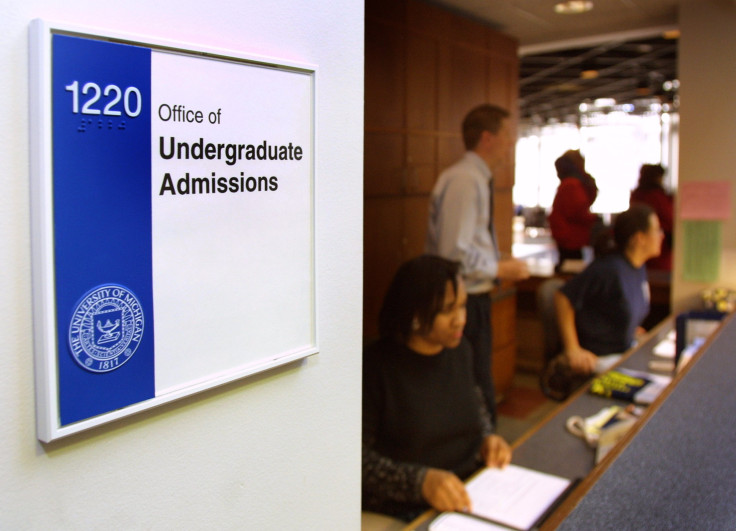College Application Process Should Focus Less On Tests, More On ‘Meaningful’ Service Projects: Report

Applying to college is often stressful, but it doesn't have to be, a report released Wednesday by a group of admissions officers suggests. More than 50 higher-education administrators recently signed on to "Turning the Tide," a series of recommendations on the application process from the Making Caring Common Project at the Harvard Graduate School of Education in Cambridge, Massachusetts. In short, they want schools to be focused more on the social good students do than on their test scores.
"We don't want students who do things just because they think they have to in order to get into college," Stuart Schmill, the dean of admissions at the Massachusetts Institute of Technology, said in a news release. "To the contrary, we want students who lead balanced lives, who pursue their interests with energy and enthusiasm, and who work cooperatively with others, all of which will help them be successful in and after college."
The report emphasizes the importance of students' "authentically chosen" service projects, which, the admissions group says, should extend for at least a year. The projects should encourage engagement that "deepens their appreciation of diversity." Applications should include only four spots for prospective students to list their most significant volunteer experiences, according to the report.
But nontraditional contributions to the public good should be valued in students' applications, too. Admissions officers should look at what students contribute to their families, such as if they care for younger siblings or have a job to support their parents.
Along with that should be a reduced weight given to standardized test scores and advanced-placement classes, according to the report. Sustained achievement in a few areas is more valuable than struggling in multiple ones. Colleges should also communicate clearly how much exams like the SAT and ACT count in their application.
“It’s about caring for what you’re doing and caring for others, and not performing to please an admissions game,” Lloyd Thacker, who worked on the report, told the Wall Street Journal.
As of 2011, the most important factors in admission decisions included applicants' grades in college prep classes, the difficulty of curriculum and SAT/ACT scores. Grades in other courses, essays, interest and recommendations ranked high as well, according to data from the National Association for College Admission Counseling, which is based in Arlington, Virginia.
Colleges with representatives who endorsed Wednesday's report included Wake Forest University, Rice University, the University of North Carolina at Chapel Hill, Dartmouth College and Emory University.
© Copyright IBTimes 2024. All rights reserved.






















